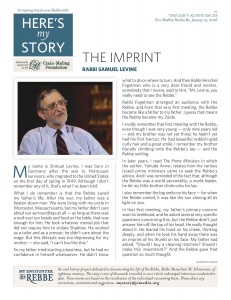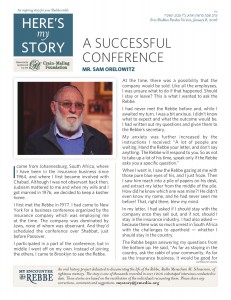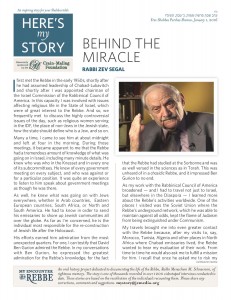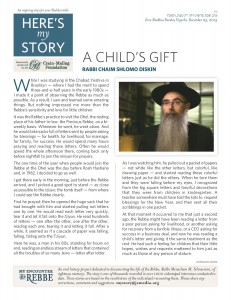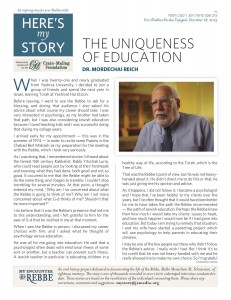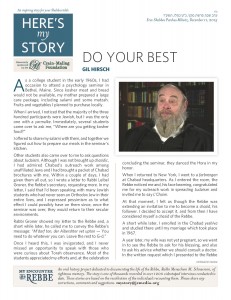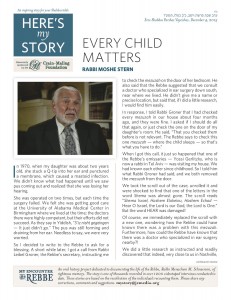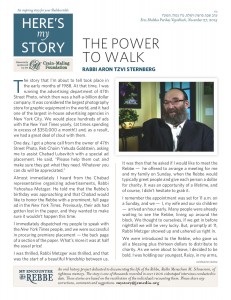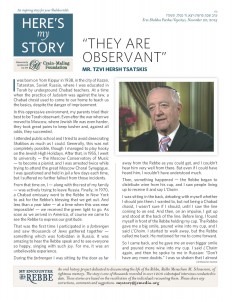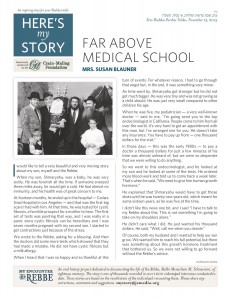The Imprint
My name is Shmuel Levine. I was born in Germany after the war to Holocaust survivors, who migrated to the United States on the first day of spring in 1949. Although I don’t remember any of it, that’s what I’ve been told.
What I do remember is that the Rebbe saved my father’s life. After the war, my father was a beaten-down man. We were living with my uncle in Worcester, Massachusetts. My father didn’t care about our surroundings at all – as long as there was a roof over our heads and food on the table, that was enough for him. He took whatever menial job did not require him to violate Shabbos. He worked as a tailor and as a presser; he didn’t care about the wage. But this lifestyle was all too depressing for my mother – she said, “I can’t live like this.”
So my father tried starting a business, but he had no confidence in himself whatsoever. He didn’t know what to do or where to turn. And then Rabbi Hirschel Fogelman who is a very dear friend and mentor, somebody that I revere, said to him, “Mr. Levine, you really need to see the Rebbe.”
Rabbi Fogelman arranged an audience with the Rebbe, and from that very first meeting, the Rebbe became like a father to my father. I guess that means the Rebbe became my Zeide.
I vividly remember that first meeting with the Rebbe, even though I was very young – only nine years old – and my brother was not yet three; he hadn’t yet had his first haircut. He had beautiful reddish-gold curly hair and a great smile. I remember my brother literally climbing on the Rebbe’s lap – and the Rebbe smiling. (more…)


